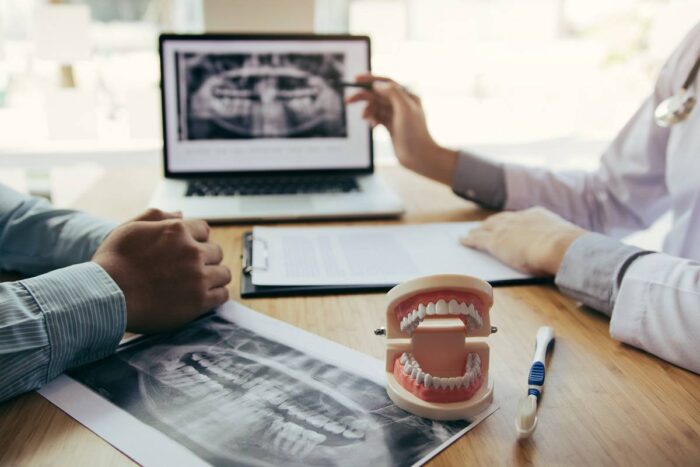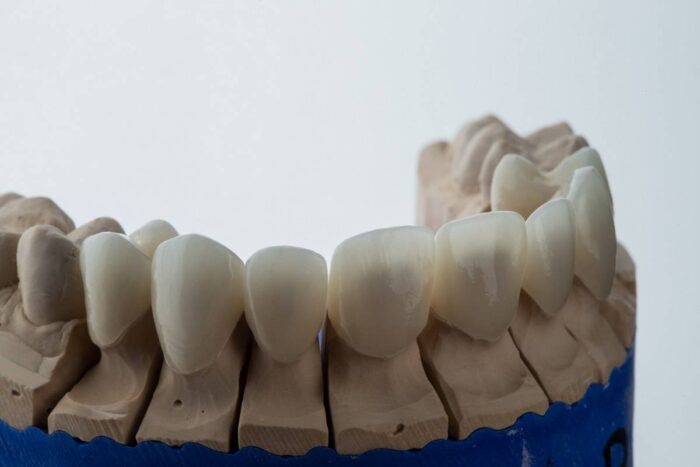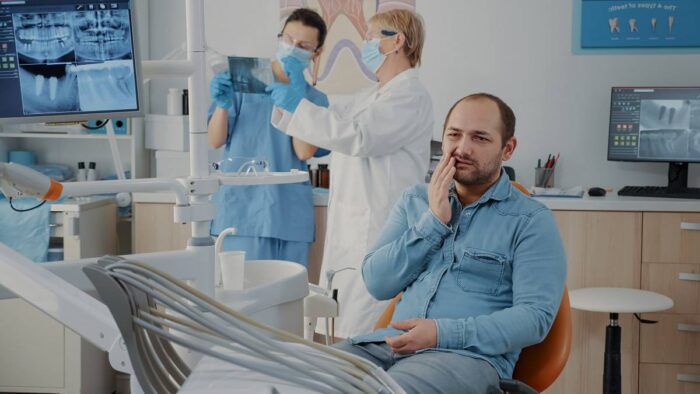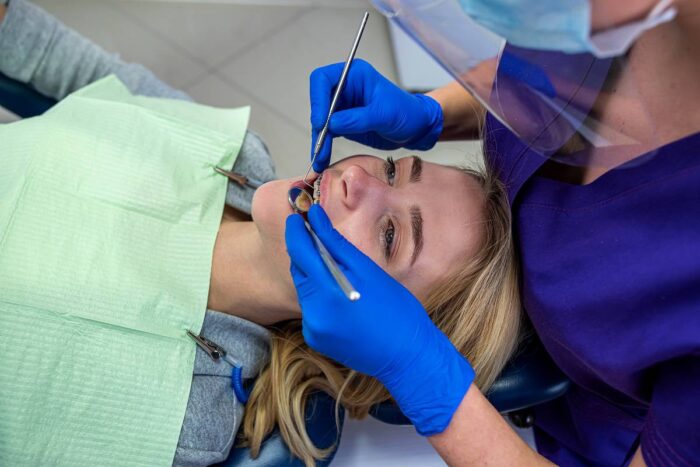People with disabilities, children, pregnant women, and low-income adults can receive Medicaid health coverage. States administer Medicaid under federal regulations. Both the state and federal governments fund the program. 83.9 million Americans are covered by Medicaid, according to the September 2022 Enrollment Report.
Medicaid is a government program that provides health insurance for low-income people. A majority of Americans receive long-term care coverage through this program. Traditional health insurance is not readily available to most Medicaid enrollees. There can be differences between states regarding eligibility requirements and benefits.
Nursing home care and personal care services are covered by Medicaid, which Medicare normally does not cover. Medicaid recipients usually don't pay anything for covered medical expenses and services, but there could be a small copayment.
If your medical bills are piling up and you cannot pay them, read our blog post about financial assistance to pay them off.
When Does Medicaid Cover Dental Care?
Since traditional health insurance programs do not cover dental services, people eligible for Medicaid often wonder what Medicaid covers dental services. Dental care is a legal requirement for Medicaid recipients under 21. In the EPSDT program, children on Medicaid are covered for dental services.
Depending on the state, adult Medicaid enrollees receive different dental benefits. Less than half of states currently provide comprehensive dental care for adults, although most provide at least emergency dental care.
Adult dental coverage is not subject to any minimum requirements under Medicaid. Medicaid will sometimes cover disabled adults, pregnant women, and seniors with low incomes in certain states, such as when they cannot provide for themselves.
Child And Adolescent Dental Coverage Under Medicaid
The following dental issues and problems are covered by Medicaid dental coverage for children and young adults under the age of 21.
- A reduction in pain and infection
- Getting your teeth restored
- Dental hygiene maintenance
Among the services covered by Medicaid are exams, cleanings, x-rays, and sealants. The insurance may also cover dental restorations, such as fillings, crowns, root canals, oral surgery, and emergency treatment, depending on your state.
Due to this, children and young adults cannot simply rely upon emergency dental care. For a dental practice to comply with reasonable standards, it must provide comprehensive dental care regularly. Other requirements must also be met.
Medical screenings can detect conditions that require treatment, regardless of whether Medicaid coverage covers the condition.
Dental makeovers are among the most expensive dental procedures in the United States. If you need a dental makeover but the cost is holding you back, read our post on how to get a free dental makeover in my area.
Adult Medicaid Dental Coverage

Medicaid provides extensive benefits to adults in some states or limited benefits in others. As per the NASHP, except for three states, in all the states in the US, Medicaid programs offer dental care for adults in some form, from emergency services to comprehensive care.
According to NASHP, eight states provide no other dental services than emergency services, which are dental treatments provided under defined emergencies to relieve pain or infection. For instance, emergency dental care may be provided for a beneficiary with abscesses in their mouths.
The American Dental Association (ADA) recognizes less than 100 dental procedures aimed at the diagnosis, prevention, or restoration are covered by Medicaid for adults in fourteen states. Therefore, your dental plan will cover different treatments and procedure such as the cleaning of your teeth, x-rays, filling of cavities, and minor restoration of damaged teeth or cosmetic dental structures. This rule, however, has some exceptions, such as the major procedures that restore a missing tooth or a set of teeth.
In 25 states and the District of Columbia, over one hundred diagnostic, preventive, and restorative dental services and procedures for dental restoration are included in Medicaid dental coverage. Most adults do not have access to dental benefits under Medicaid in Alabama, Maryland, and Tennessee. However, Maryland and Tennessee do provide dental benefits to pregnant Medicaid beneficiaries even though they do not provide dental benefits to their general Medicaid populations.
State-To-State Disparities In Coverage
A striking feature of the Medicaid program is that the dental coverage for Medicaid adults varies greatly from state to state. For example, for eligible Medical beneficiaries in the states of NY and NJ, Medicaid covers a wide range of adult dental benefits.
In Pennsylvania and Delaware, however, limited number of dental benefits are available through Medicaid. Medicaid adult dental benefits are limited in Missouri, while Medicaid dental coverage is extensive in Montana.
Medicaid Dental Coverage Expansion
Two states, Tennessee and Maryland, that did not have Medicaid dental coverage previously, are extending the Medicaid dental benefit to their residents. TennCare members (in Tennessee) have access to dental benefits starting January 1, 2023. In addition to regular exams, x-rays, cleanings, fillings, crowns, and other dental care, adults can now see a dentist at no charge.
Beginning in January 2023, Maryland Medicaid will start offering limited dental coverage to its adult residents. Medicaid adults in Alabama will be left without dental coverage due to a lack of dental benefits. Furthermore, the New Hampshire Medicaid program began offering extensive dental coverage at the start of April 2022, whereas it formerly only covered emergency dental care.
Pregnancy And Medicaid Dental Coverage
Women on Medicaid can access dental services more easily in many Medicaid programs due to the steps taken to provide them. Due to the possibility of decreased weight of newborns and premature delivery caused by oral health problems, this is a serious issue.
Medicaid enrollees who are pregnant may have access to an expanded selection of dental treatments under your state's Medicaid program. For example, the Medicaid program in Michigan provides limited dental coverage for adults, but it covers pregnant women extensively.
Pregnant women are also typically more likely to be eligible for Medicaid and the associated dental insurance. For instance, the Medi-Cal program in California is usually available only to families earning under 138% of the FPL. An individual who earns up to $28,947 annually can qualify for Medi-Cal and its dental benefits if she is pregnant.
Are Dental Implants Covered By Medicaid?
Dental implants are not considered critically important for the patient's overall health by Medicaid, making them an unnecessary and expensive treatment. The average cost of a dental implant is over $3,000 per tooth.
Occasionally, a Medicaid beneficiary or their healthcare provider may receive Medicaid coverage to obtain dental implants. This happens int the event of demonstrating the medical necessity of dental implants for the well-being of the Mediciaid beneficiary. Proving whether the implants are medically necessary rests with the patient's dentist or physician.
Under the Early and Periodic Screening, Diagnostic, and Treatment (EPSDT) benefit available for people under 21, proving the medical necessity of dental implants might be easier to obtain assistance through Medicaid. This program aims to prevent serious medical problems by providing early diagnosis and treatment of medical issues.
Dental implants can be covered by Medicaid when Medicaid functions as health insurance. If the problem originated elsewhere in the body, all dental procedures needed to preserve jaw bone structure would be covered by the program. It means that you must have other medical conditions, such as diabetes or osteoporosis, as the cause of missing teeth.
Finding Dentists Who Accept Medicaid
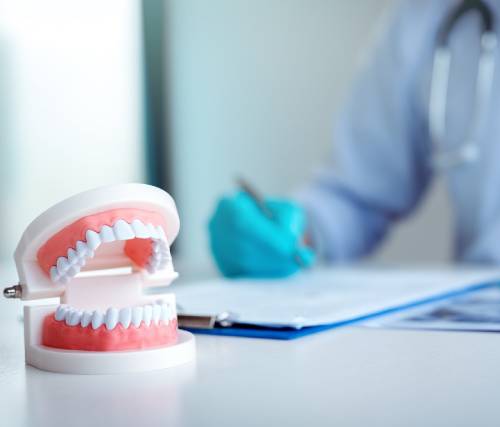
Patients with Medicaid may have difficulty finding dentists who accept them. Low Medicaid reimbursement rates lead to just 40% dentists accepting Medicaid patients. If you are looking for dentists that accept Medicaid or CHIP, you may want to check the government website InsureKidsNow.gov. You can find dentists near you according to your region, their dental specialization, and availability by searching the website.
Those over 21 interested in learning about the different types of dental treatments and services that are covered by Medicaid can signup on their state's Medicaid website. You can also view the list of dentists who accept Medicaid-managed care plans on the website of your respective insurance company. Logging into one's Medicare Advantage account will give you access to the different dentists and the services that are covered under Medicaid and Medicare Advantage plans.
There can be a wide variation in the expense of dental care treatment that is required and the amount of dental insurance coverage you have at any given time. Make sure you know about the extent to which Medicaid will cover your dental procedures and what amount are you expected to pay out of your pocket before beginning treatment. Verify if your dental plan offered by Medicaid has any limit on the amount that can be spent on your dental treatment. If the procedure cost exceeds what you can afford at the time of service, check if your dentist can set up a payment plan for you.
Dental Chains That Accept Medicaid
The fact that some of the biggest dental chains in the country are associated with Medicaid programs is encouraging, even though it may be difficult to find dentists who accept Medicaid patients. The Liberty Dental and DentaQuest plans fall under this category. The dental practices associated with Aspen Dental do not entertain patients with Medicaid.
| Dental Provider | Acceptance of Medicaid |
| DentaQuest | DentaQuest accepts Medicaid in thirty states |
| Liberty Dental | Accepts certain Medicaid dental programs in the states of CA, NV, Fl, and NY. |
| Aspen Dental | Does not accept Medicare in any state. |
Dental Clinics And Dental Schools
Medicaid patients might also benefit from their local dental schools and clinics. Medicaid beneficiaries often benefit from dental clinics that offer very low-cost services. Those without insurance can also benefit from their services.
Under the supervision of their instructors, dental students at a number of dental schools operate dental clinics for the beneficiaries of Medicaid. Medicaid patients either pay very less or get the dental treatment for free in exchange for future dentists' hands-on training. Urban areas are more likely to have such clinics run by dental schools than rural areas.
Frequently Asked Questions
The Medicaid program can be confusing when it comes to dental coverage. In certain circumstances, depending on the dental issues and the state in question, Medicaid might cover your partial or entire dental treatment costs. The following are a few frequently asked questions about Medicaid regarding dental care.
Dentures, crowns, sealants, as well as other common dental treatments covered by Medicaid. Examples include routine teeth cleaning, fillings, x-rays, root canals, oral surgeons, and dentures. Medicaid would not normally cover a root canal, a dental implant, or a bridge.
Doctor's appointments, medication, dental screenings, rehabilitation, surgeries, hospital stays, and more are covered by Medicare. As a part of Medicare, California has a program called Medi-Cal. Root canal treatment, including the anterior and posterior procedures, is covered by Medi-Cal.
Dental insurance plans generally cover root canal procedures after the deductible has been reached, but it depends on your plan. Most dental insurance companies cover 50% - 80% of the cost after the deductible.
Suppose you are wondering what Medicaid covers dental services. In that case, the coverage for dental care varies from state to state in terms of the care level and the demographic to which the eligible Medicaid enrollees belong. Except for Alabama, every state in the US provides dental coverage through Medicaid, ranging from select procedures and treatment options to full coverage.
Need help in finding dental offices that accept Medicaid? Check out our comprehensive guide about dental offices that accept Medicaid.
To read more articles on the different government and private programs that help low-income individuals, check out the rest of the Gov-Relations. If you wish to obtain a high school diploma but cannot afford it, read our online article on financial assistance for a high school diploma.



